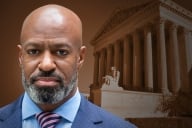You have /5 articles left.
Sign up for a free account or log in.
If departments want black science, math and engineering students to become faculty members, they should have mentors who want close relationships with them, according to a recent study from the University of California at Berkeley.
Anne J. MacLachlan, a researcher at Berkeley’s Center for Studies in Higher Education who conducted the study, said that, in many cases, the first steps would be to hire even a single black faculty member, and to simply make an effort to mentor black graduate students.
MacLachlan interviewed 33 black men and women who had received doctorates in science, mathematics and technology fields from Berkeley between 1980 and 1990. Ten of the interviewees had come from historically black colleges and universities, and six others came from liberal arts institutions. MacLachlan found that it was very easy for those students to feel alienated from any sort of community upon landing at Berkeley. “The size is daunting,” MacLachlan said. “Lots of people are white or Asian. [Black students] have to learn how things are done in such a place. It’s less an issue of race, and more an issue learning an entirely different culture.”
Given that doctoral students of all backgrounds regularly leave before completing their degrees, any added impediment can be devastating.
Even when black graduate students advance to become faculty members, feelings of isolation can persist, MacLachlan wrote in her report. Such sentiment may prompt the faculty members to “vote with their feet,” as MacLachlan put it. In her report she referenced a 2001 paper that noted that, of about 150 black physicists documented by the American Institute of Physics, two-thirds teach at a historically black college or university.
Some institutions, including Berkeley, have hired diversity recruiters to seek out minority candidates for faculty positions. MacLachlan cautioned, though, that diversity recruiters can make faculty members feel like they shouldn’t be pro-active, and the faculty, she said, is the key to recruiting success.
MacLachlan added that, for all underrepresented minority students, faculty members should go to institutions that have a lot of those students and “give a seminar, meet with students, suggest other faculty with who they can work … just show that the department is very willing to entertain an application from them.”
Some of the people MacLachlan interviewed were personally recruited to their department by faculty members, some of whom brought a minority graduate student along with them.
MacLachlan said she’d like to see mandatory diversity training for faculty members. She helped get a National Science Foundation summer grant for a minority undergraduate researcher to work with a professor, and any Berkeley faculty member who wants to be eligible has to do training in mentoring minority students.
Sweeping diversity training, however, is not an easy sell. Last summer, a committee at the University of Oregon proposed introducing “cultural competency” into decisions on hiring and tenure. The idea met was met with vociferous opposition.
One math professor, and a first generation immigrant, noted that the Oregon math department is extremely diverse in terms of having people who were born in many different countries.
MacLachlan said that math departments have been diverse from a nationality standpoint for decades, but that that doesn't reflect the experience of American minority groups.
The bottom line, MacLachlan noted in her report, is that “if there is an interest, there are many things a department could do.”








